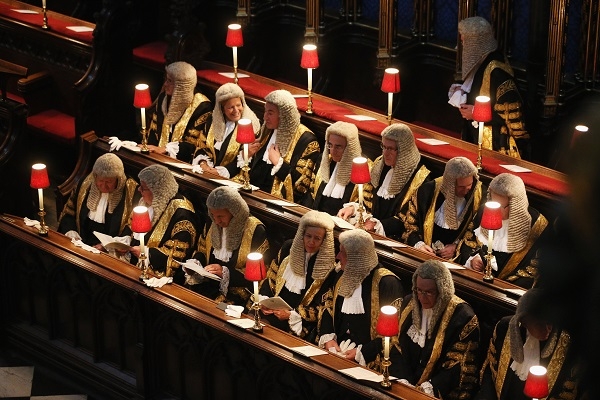The stooshie over judicial review is not about lawyers, although one should be forgiven for thinking otherwise given much of today’s coverage and reaction. Really, it is about the rule of law and representative democracy.
So much of the debate around legal reform (not just judicial review) has been skewed by familiar obsessions with ‘human rights’, ‘lefty lawyers’ and ‘right-wing bastards’. Such media tropes are not created ex nihilo. Public administration has become highly politicised, and all sides play the game. I’ve heard government-types talk about the need to break ‘lefty lawyers’’ perceived monopoly over legal aid and some corners of the judiciary. And I’ve heard said ‘lefty lawyers’ talk in nakedly political terms about employment and immigration cases. Sometimes these lawyers exude the sense that the battle is more important than the outcome; but, to give them credit, their faith runs deep and they were equally contemptuous of the previous government.
There is, however, rather more to public law than this. Dr Mark Elliott, a leading academic, has written a very useful and often passionate account of these matters. He makes the point:
‘For all that it is now fashionable to dress up everything in public law in the language of rights, administrative law is fundamentally not about individual rights: it is about public wrongs.’
The government is understood to want to narrow ‘standing’ – that is the legal capacity to launch a review – by insisting that claimants must have ‘direct’ rather than ‘sufficient interest’. Elliott makes a practical objection: that moving to a ‘direct’ interest will not reduce the incidence of immigration and asylum cases, which have risen in recent years (coinciding with cuts to legal aid), because there could be no more ‘direct interest’ than receiving an adverse decision on one’s leave to remain. And he makes a philosophical case for a broad definition of standing, quoting Lord Diplock’s famous words:
‘It would, in my view, be a grave lacuna in our system of public law if a pressure group … or even a single public-spirited taxpayer … were prevented by outdated technical rules of [standing] from bringing the matter to the attention of the court to vindicate the rule of law and get the unlawful conduct stopped.’
The key phrase here is ‘public-spirited taxpayer’. The government’s reform argument is covered in filthy lucre: ‘Why should the taxpayer fund this excess?’ The polite response is: well, the claimants, in a broad sense, are taxpayers and the government has a duty to them. Reformers often counter-punch with: ‘These decisions are taken by unelected judges’. This betrays, as Dr Elliott says, an ‘impoverished’ view of democracy in which participatory institutions, like the courts (and this is another reason to make them more accessible), are supressed beneath representative institutions which are rarely if ever in rude good health.
Yet for all Dr Elliott’s erudition, he doesn’t allay (admittedly vague) concerns about the abuse of this valuable system by (you guessed it) politically motivated groups, many of which do not bother with the representative system at any level; and are, therefore, unaccountable to everyone except themselves. There is, you see, more than one impoverished view of democracy.
The courts’ interpretation of ‘standing’ has been broad; but, as Dr Elliott concedes, it is ‘not infinitely broad’. Is there a case for it to be a little tighter? The government’s proposed reforms may be unpalatable, even unworkable; but it would be interesting to see if the legal profession, the judiciary and groups such as Liberty could agree on an alternative. Either way, this debate is fundamental to both sides of the democratic ledger.






Comments